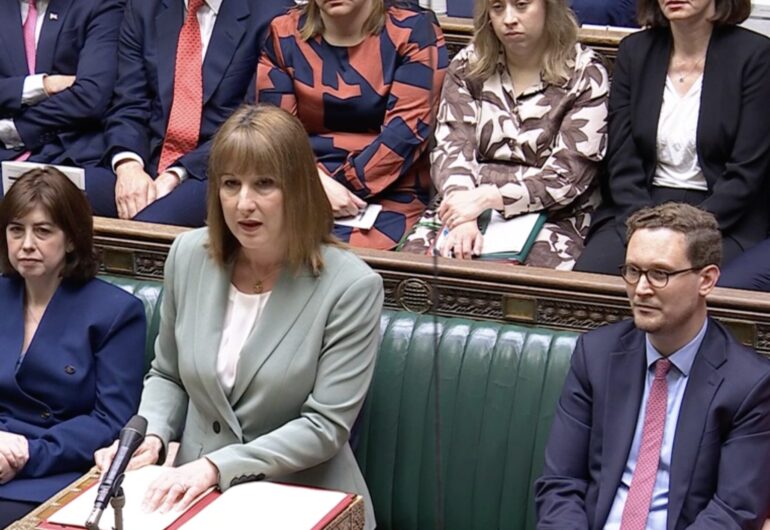The Chancellor Rachel Reeves delivered her Spending Review 2025 to Parliament today, 11th June 2025, confirming the allocation of £39bn towards affordable and social housing, signalling a renewed drive to address the UK’s housing crisis.
The Government set out its vision and financial commitments for the years ahead, including bold plans to invest in public services, infrastructure and jobs.
This direct Government funding is specifically targeted at social rent housing, with initial cities like Blackpool, Preston, Sheffield, and Swindon already preparing housing bids.
Additionally, £10bn will be invested through Homes England to attract private investment and unlock hundreds of thousands of new homes.
Reaction:
Paresh Raja, CEO of Market Financial Solutions:
“The £39 billion investment in affordable and social housing is hugely positive news. If more homes are to be built across the UK, funding and policy must go hand in hand; for all the talk of planning reform, and the use of AI in improving the planning process, there’s no escaping the fact that significant investment is required.
“Amidst concerns that Labour’s promises of tackling the housing crisis would amount to little, this announcement could signal a notable step forward. Government investment will encourage activity from the private sector, injecting fresh life into the housebuilding industry.
“As ever, lenders must be ready to respond in turn; ensuring different types of borrower, from first-timer buyers to seasoned investors, are supported with the right products and fair, diligent ways of assessing applications is going to be absolutely vital in creating a more equitable future for the UK property market.”
Peter Rainier, principal director of planning at law firm DMH Stallard:
“To ensure the wider aspiration for high volumes of housing over the coming years, there is still much to be done, particularly in ensuring local planning authorities are properly resourced, SME’S are assisted and through the Planning Bill, that strategic/local plans are progressed efficiently and development is not unduly hampered by concerns relating to surface water and environmental protections.”
Nick Jones, the mortgage sales and marketing director for Access FS:
“It’s tempting to focus on the big-ticket announcements around housing – and there was certainly some good stuff in there on Homes England and social housing. But while everyone’s dazzled by the sexy stuff, Angela Rayner’s been very publicly battling to protect day-to-day funding settlement for her department, the Ministry for Housing, Communities and Local Government (MHCLG).
“She has been right to. While that funding is not in the spotlight, cuts there could have a major knock-on effect for levels of resourcing in local government planning support.
“So, while it might not grab the headlines, I’m worried reductions in local government budgets could hobble planning functions. Planning delays and under-resourced local authorities have been holding back the UK’s property market for too long – and this could make the situation worse.”
Tony Hall, head of business development, Saffron for Intermediaries:
“Nearly a year into the Labour Government’s term, and with the 1.5 million homes pledge looking increasingly hard to deliver, it’s really positive to see this level of investment going into affordable housing. A long-term funding commitment like this sends the right signals to developers, housing associations and lenders, and should give first-time buyers a better chance of finding a home they can actually afford.
“That said, funding is only part of the equation. The planning system remains one of the biggest blockers to delivery and, without proper reform, too many projects risk being left in limbo. If we’re serious about hitting the 1.5 million homes target, we need to look at all options on the table. Self- and custom-builds are just one example of where change could unlock real progress, but only if we make it quicker and easier to get viable developments off the ground.”
Dave Seed, managing director at Qube Residential:
“Rachel Reeves’ Spending Review brings a mix of challenges and cautious opportunities for landlords. Regulatory changes and potential tax adjustments, such as those proposed in the Renters’ Rights Bill, are increasing pressure, while rising costs continue to squeeze already tight margins.
“Now more than ever, a strategic and forward-thinking approach is essential. Landlords must strike a difficult balance—maintaining property standards, supporting tenants, and protecting profitability.
“While the outlook remains uncertain, targeted infrastructure investment and progress towards the proposed 1.5 million new homes could open up areas of growth. We remain committed to helping landlords navigate an increasingly volatile market—one that faces yet another shift, despite earlier assurances from Keir Starmer that there would be no additional budget announcements.
“That said, allowing social landlords to raise rents 1% above inflation is a sensible move. It reflects economic reality, supports long-term viability, and gives landlords confidence to invest in building and maintaining homes.”



